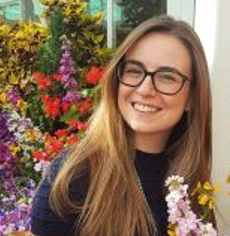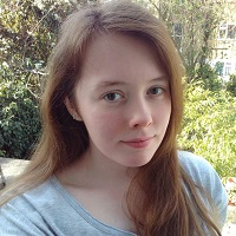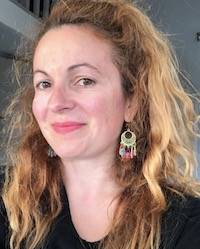Social Neuroscience
Antonia HamiltonGroup Leader
+44 20 7679 4640 |  |
Social Neuroscience Research
The Social Neuroscience group studies the underlying mechanisms of social interaction, and whether these develop differently in individuals with autism spectrum condition.
Our research spans many domains and questions:
- Social - how do people interact with other people, in particular nonverbal interaction and hand actions?
- Cognitive - what are the information processing mechanisms involved in social interaction?
- Developmental -how does social cognition develop over childhood and why does this development sometimes go wrong?
- Motor - how do we move in response to others, interacting as well as perceiving?
- Neuroscience - what brain systems and connections are involved in social interaction?
To answer these questions, we use behavioural, cognitive, virtual reality and brain scanning methods to study healthy children and adults as well as those with autism spectrum condition.
Group Members
PhD Students
- Sara de Felice

sara.felice.16@ucl.ac.uk I am interested in studying the neural and behavioural features that emerge during natural human social interaction, and whether these are associated with learning. Do we learn better from people we are more socially tuned with? I use functional near-infrared spectroscopy (fNIRS) in hyper scanning studies (recording brain activity from two people simultaneously) to study brain-to-brain synchrony. I also use motion capture, video and audio recording data to identify behavioural coordination patterns during social learning tasks. I am founded by the Leverhulme Trust as part of the Ecological Study of the Brain DTP.
- Isla Jones

My research explores the neural mechanisms underlying the audience effect, and I have a particular interest in exploring social interactions in real-world environments. As part of my PhD, I am also working to develop and improve analysis methods for the integration of physiological data such as heart rate and breathing rate with functional near-infrared spectroscopy (fNIRS) and behavioural data. In collaboration with Shimadzu, my research aims to provide a new neurocognitive understanding of the origins of the audience effect.
- Paula Wicher

paula.wicher.20@ucl.ac.uk I am interested in studying mechanisms and neural effects of motor and emotional mimicry. Particularly, I am interested in exploring dyadic social interactions in ecological settings. During my PhD, I aim to use a variety of techniques, including video recordings, motion capture, virtual reality (VR) and functional near-infrared spectroscopy (fNIRS).
- Dwaynica Greaves

I am an interdisciplinary researcher interested in the effects of theatre training on the theory of mind and sense of self of professional actors. My research contributes to the wider work on the importance of the arts for socio-cognitive development. My project utilises wearable technology such as functional near-infrared spectroscopy (fNIRS), and physiological measurement devices to conduct experiments in naturalistic environments with naturalistic stimuli. I am also interested in effective science communication and how researchers can dissect their work for the wider populations understanding.
Honorary Research Fellows
- Anna Ciaunica

a.ciaunica@ucl.ac.uk I am a philosopher and cognitive scientist interested in interdisciplinary approaches to embodied cognition. My research focuses on the relationship between (a)typical forms of self-consciousness and social interactions. I am a Principal Investigator at the Institute of Philosophy Porto, the Mind, Language and Action group (MLAG); and a Research Associate at the Institute of Cognitive Neuroscience,University College London, and the Social Neuroscience Group. I coordinate the international and interdisciplinary Network for Embodied Consciousness and the Arts (NECTArts) aiming at fostering creative collaborations between philosophers, scientists, artists and performers worldwide.
 Close
Close



